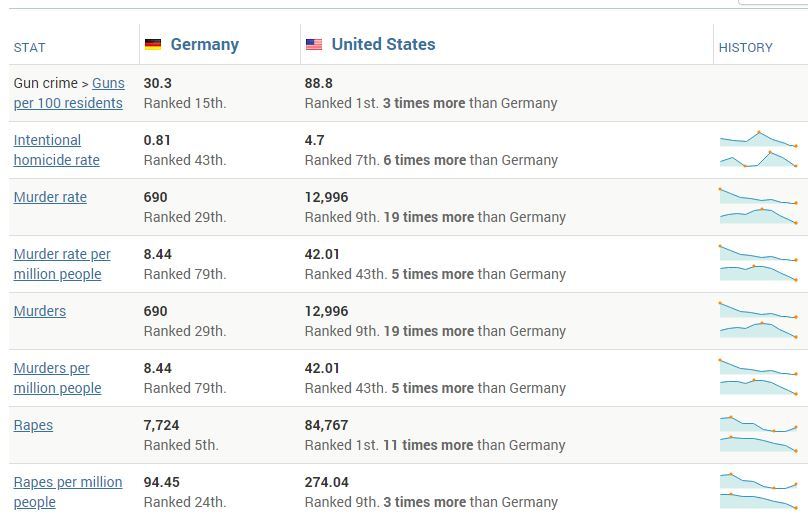This is shaping up to be a very American discussion, and maybe that's ok because most poster on this board are American, too, and the police violence discussion is largely an American one as well.
Therefore, I am going to make some points and ask some questions to those involved.
1) The subjective element
I learned in this thread that the judgement of whether use of force (especially shootings) is justified is based on the facts available to an officer at the time. Now in the U.S., bodycams have become a thing, and I think that's good for everyone involved. False accusations by suspects can be countered, but also cops who go too far or otherwise would go on a power trip can be kept in check. At the same time, this is always going to be a tough concept to apply. We had a case in Germany where a Hells Angels member shot and killed a SWAT team member through the closed alabaster door. Police had tried to raid his house and had failed to identify themselves; there is no such thing as the castle doctrine in Germany, but the Hells Angels dude credibly stated he had assumed a Bandidos attack on his life.
Conversely, there also has been the case of
Iain McLeod who was an innocent Scotsman living in Germany, who was shot and killed during a raid in 1972 as a suspected
RAF member. He was killed with shots through the closed bedroom door; the cop claimed he had feared for his life. The case was never brought to trial.
The subjective element is crucial and still so problematic.
2) Culture of violence
I get a really, really bad feeling when I read what
@SpAzNeT is writing. I can well understand where he is coming from; it doesn't feel right to put your life on the line for some dipshit criminals, and his experience as a member of SWAT teams certainly has strenghtened that position. But his stance - escalate violence - to me is very illuminative of the larger issue. Sure, every situation is different, and there certainly are instances where this is exactly the right approach to end a situation quickly. But at the same time, there are certainly also situations where standing down, clearing the area, waiting for backup, deescalating etc. is also a possible approach - see the very measured stance
@nhbbear has. I think a lot of the issues come down to the culture of violence in the US. To me, it seems that yes, US police has a violence probem and should be trained better (I just LOL whenever I hear about 10-12 week training courses, training should at least be 3-4 years). But the larger problem is the US culture of violence, which includes the reasonable assumption that suspects carry guns, and also the assumption that police must immediately establish dominance and end even non-immediate threats. The rule of law does not crumble instantly if you try to deescalate.
3) Personnel situation
One further issue that gets way too little attention IMO is the personnel situation. Just a short Google search tells me that there are about 800k sworn cops in the United States; that is about 0.25% of the population. Germany has about 275k cops, which is about 0.33% of the population. That means Germany has ((0.33 / 0.25)-1)*100)=) 33% more cops. And that despite the fact that violent crime is much more of a problem in the US than in Germany. Take a look at the facts here:
(Source:
https://www.nationmaster.com/country-info/compare/Germany/United-States/Crime/Violent-crime)
Why am I mentioning this? Well, in my opinion, there are a number of factors to consider.
First, if you are stretched thin and have potentially to wait longer for backup, you will be more likely see yourself compelled to "force" an end to a tense situation.
Second, and maybe more importantly, cops are never alone in Germany. They always have a partner when they are on patrol. This is crucial for many situations and introduces a different dynamic than when people are on their own (as I understand is often the case in the U.S.)
Of course, this does not come for free. And here I believe the U.S. obsession with low taxes comes into play. A well-trained and well-staffed police force comes at a price. Are you willing to pay it?



